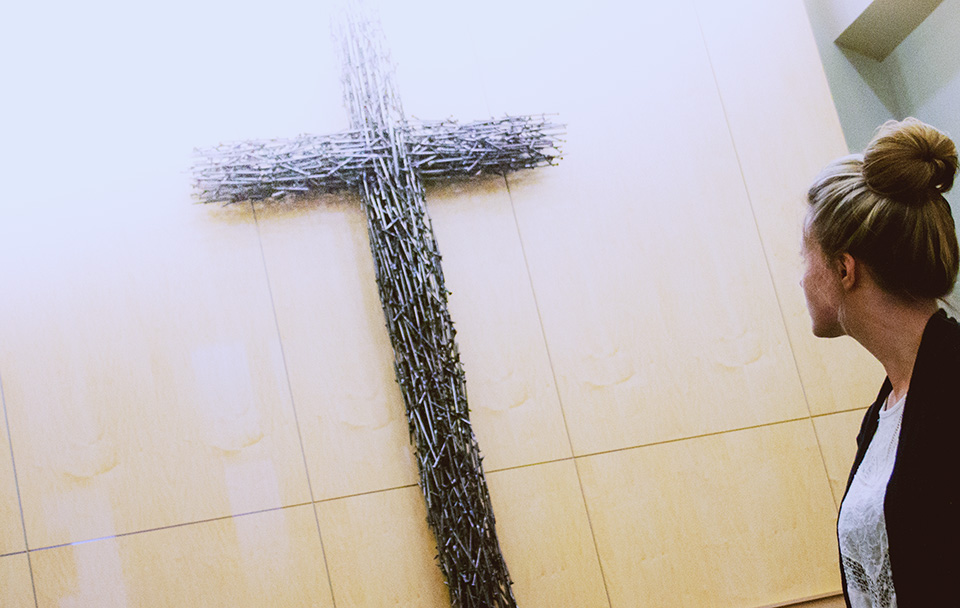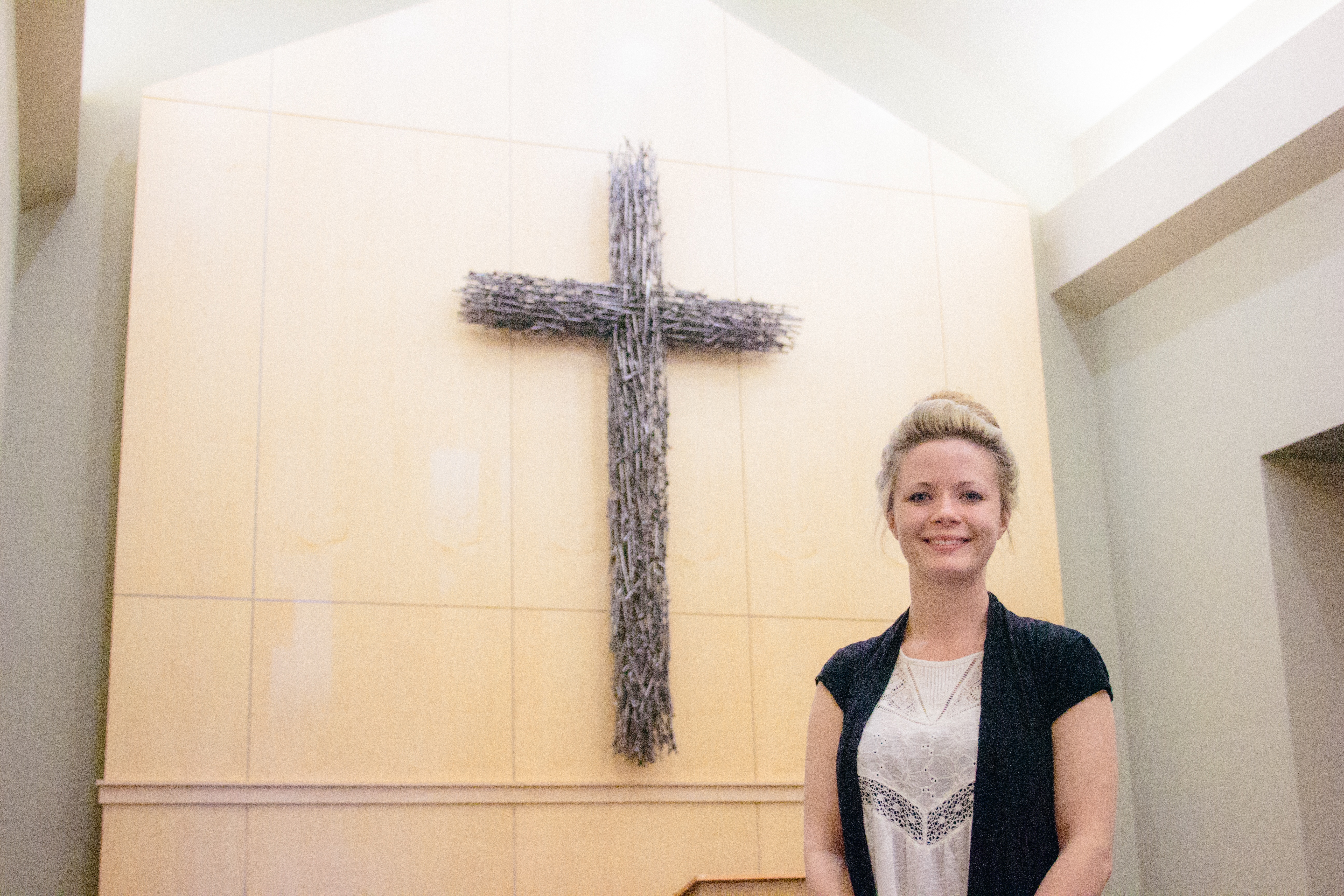2 min read
Gospel-Centered from the Start
“Let us hold unswervingly to the hope we profess, for He Who promised is faithful…Jesus Christ is the same yesterday, today, and forever.” (Hebrews...
3 min read
Written by former Men’s Recovery Program Supervisor Mike Sholtz
I had been working at UGM for only a short time when one of the men in the program got up to do a self evaluation. He shared a Bible passage that was pertinent to his story. It was John 8:31-32: “To the Jews who had believed him Jesus said, ‘If you hold to my teaching, you are really my disciples. Then you will know the truth and the truth will set you free.’” The resident then added, almost under his breath, “But it will definitely tick you off first.”

In recovery, one of the things that we have to face is who we became in our addiction. We have to face the truth about the person we became when we were drinking, or drugging, or acting out and actually grieve that person. We can only have true freedom in recovery when this has been accomplished. This is a hard process to go through. To actually acknowledge that person I became—the hurt that I caused and the mess I left behind—is painful. But it needs to happen.
I have thirty-plus years in recovery from an alcohol addiction. I started drinking at twelve, and was, to be honest, a mess during high school. I had what I call my “sober years” during college, only because I went to a Christian College and alcohol was not readily accessible. Soon after college, I moved away from my support system and ended up in a place where alcohol and drugs were easily accessible for me again. Soon I was back in my addiction, both drinking and doing drugs. After a couple of years, at twenty-five, I decided I had had enough and went into treatment. I did what we at UGM call a “spin dry” program for all of twenty-three days. But something happened to me in that short time: I started to face the man I had become—the addict, the alcoholic—and it hurt... a lot. I hated it, I hated looking that guy in the face and acknowledging what I had done and who I had hurt in my selfishness and in my addiction.
One painful truth I learned is that I am a manipulator. I say “I am” because, without God’s guidance and strength, I still tend to go there. In my addiction, I would manipulate people emotionally to get them to feel sorry for me. There was something inside of me that needed people to love me, and I would go to any length to try and get that love. Unfortunately, my striving to get love and belonging from people at all costs came at a price for me and for other people. When I entered that twenty-three day program, I was not totally aware of the carnage I had caused, nor did I want to be aware. But places like that facility and places like UGM make us stop and look to actually see the wreckage in our past. Only when I stopped and looked, and realized what I had become, was I able to get the freedom that I had been searching for since I was twelve years old.
Real freedom came a couple months later in a Good Friday church service when I rededicated my life to Christ. In that moment, the man that I had been in rehab died and a new man was born. I experienced a freedom that looked and felt different than anything I had ever experienced before.
In our recovery programs at UGM, the necessary element is to look inward—to begin to dissect the wounds and the trauma that led men and women to make the choices they did, that in turn led them into addiction. When the truth is revealed, when the truth is acknowledged, freedom begins. In Romans chapter 7, Paul acknowledges the hard truth of who he was. Over and over he laments the idea that, “I have the desire to do what is good, but I cannot carry it out.” Paul recognizes that sinful, selfish part of him. He acknowledges it. Part of the process of recovery is acknowledging that I am selfish and sinful and apt to do my own thing.
This is one of the reasons that our programs are 18-24 months long, because this is a long and painful process to go through. But we need to go through it to get the freedom that we so desperately need. I am always encouraged by Paul’s words in Romans chapter 8. Just after his lament, he says, “Therefore, now there is no condemnation for those who are in Christ Jesus.” In that statement, I can rest.
The process of looking at our addicted self, the pain we left behind and the damage we caused, is painful, gut- wrenching work. But the men and women who go through our programs, the ones who choose to do the work, experience a freedom they have never known before because they are in Christ Jesus, and in Him, there is no condemnation.
Freedom is central to recovery because, without it, we are bound by sin and shame. When God begins to set us free from the bondage of our addiction and from the shame of the choices we’ve made, our lives change. True freedom starts with the truth... but don’t be surprised if it ticks you off at first.
Learn more about UGM's Life Recovery Commencement.

2 min read
“Let us hold unswervingly to the hope we profess, for He Who promised is faithful…Jesus Christ is the same yesterday, today, and forever.” (Hebrews...

9 min read
To celebrate 75 years of serving the Inland Northwest, we are spending the year remembering our history and the faithfulness that built us and...

2 min read
In 2026, Union Gospel Mission Inland Northwest is approaching our 75th Anniversary! This is a milestone that invites gratitude and reflection, and...

Written and performed by 2016 UGM LIFE Recovery alum Amanda Taylor.

Freedom of speech, freedom of religion, freedom of expression—we value freedom. We celebrate it! But there are different types of freedom, and...

An Easter season reflection by former UGM staff writer, Merrily Brast.